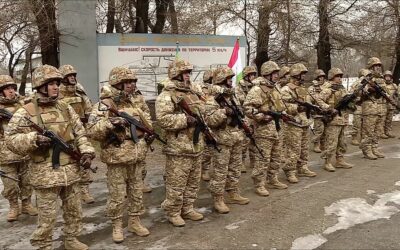In a report submitted to the UN Human Rights Council in 2010 on the issue of human rights and transnational corporations and other business enterprises, John Ruggie (lead author of the UN Guiding Principles) stated that: “[t]he worst corporate-related human rights abuses occur amid armed conflict over the control of territory, resources or a government itself – where the human rights regime cannot be expected to function as intended and illicit enterprises flourish”.
The UN Guiding Principles on Business and Human Rights (UNGPs) recognise that business activities in conflict-affected and high-risk areas increase the risks of enterprises fuelling conflict. International humanitarian law applicable to business in conflict-affected areas include, for instance, the Geneva Conventions and their Additional Protocols and The Arms Trade Treaty.
Business may contribute to, or facilitate, human rights abuses committed by other actors, such as security forces or armed non-state actors. For instance, tin, tantalum, tungsten, and gold are metals found in most household electronic appliances. However, they are often mined in conflict areas, such as Eastern Democratic Republic of Congo, and have consequently earned the term ‘conflict minerals’. The purchase of conflict minerals contributes to human rights violations including summary executions, forced labour, rape, and finances armed rebel groups who contribute to ongoing violence in the region. Companies have also been accused of being complicit with military dictatorships by enabling the torture and disappearance of trade union members and workers.
It is also important to note that conflict can result in higher levels of violence against women and girls, including arbitrary killings, torture, sexual violence and forced marriage. Women and girls are primarily and increasingly targeted by the use of sexual violence, including as a tactic of war. While women and girls are in general more predominantly subject of sexual violence, men and boys have also been victims of sexual violence, especially in contexts of detention.
Text adapted from the Danish Institute for Human Rights Global NAPs website. Image below from a forthcoming due diligence in conflict guidance by Ashley Nancy Reynolds.









